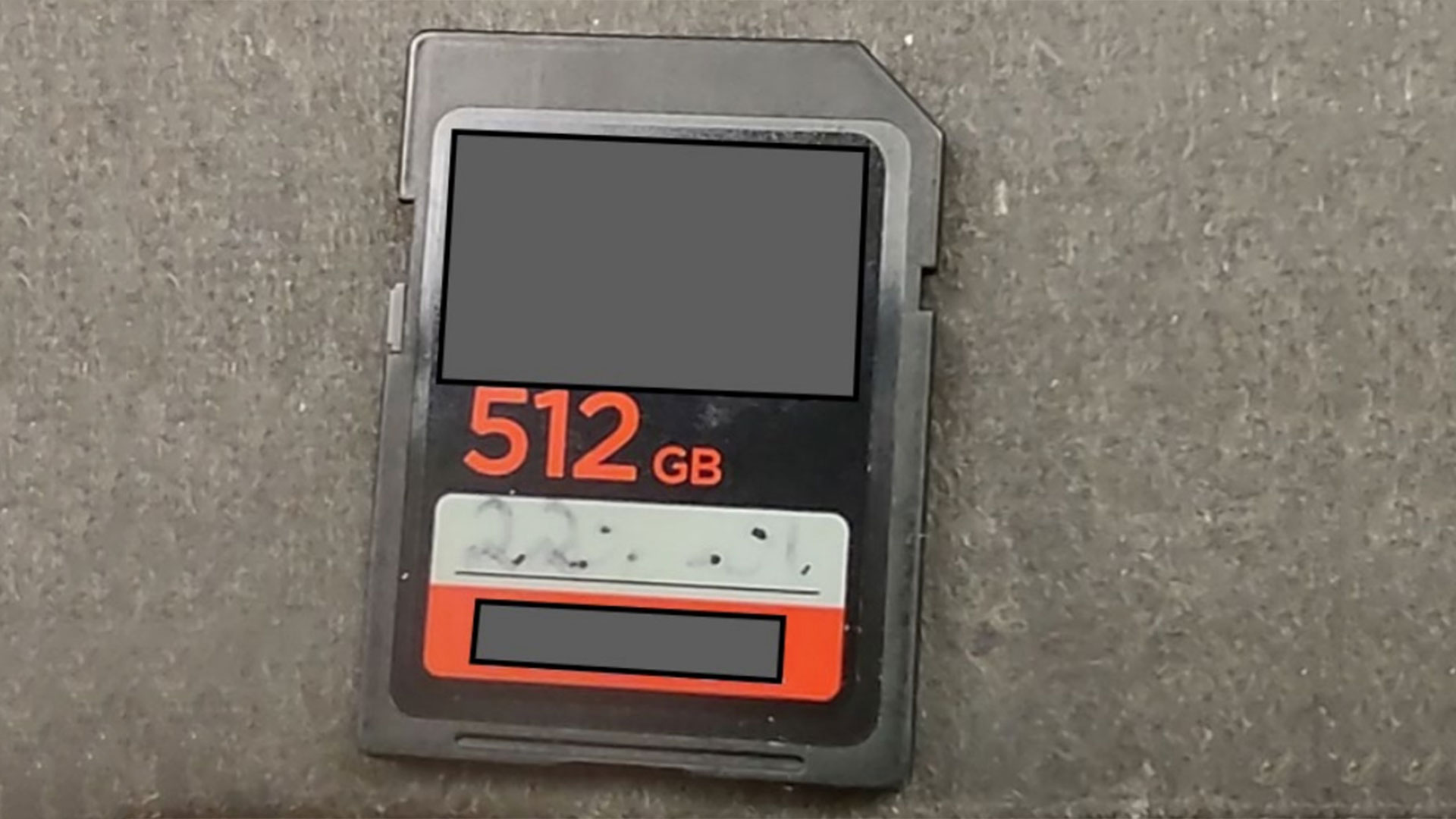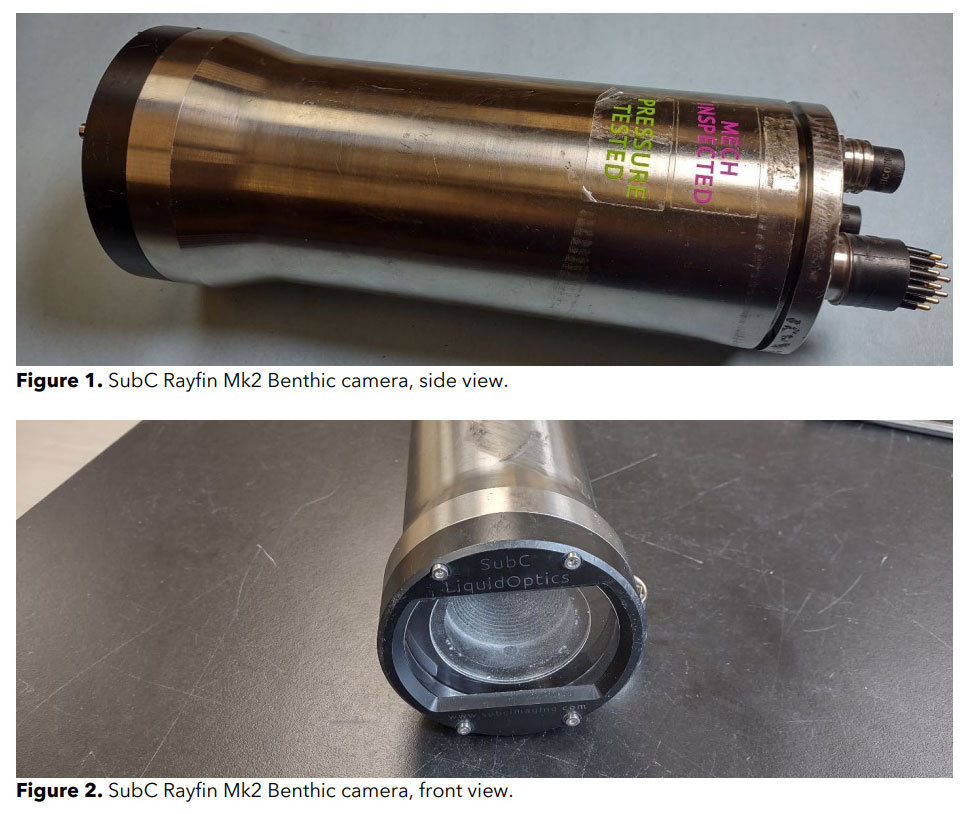Tragic Titan submersible’s $62 SanDisk memory card found undamaged at wreckage site — 12 stills and nine videos have been recovered, but none from the fateful OceanGate implosion
The specialist camera was rated to 6,000m, but the lens and some of its components were probably damaged by the implosion.

Recovery teams working on the Titan submersible have found the vessel's specialist stills and video camera intact. Fascinatingly, while there was some damage to the camera’s housing and internal components, tech and science enthusiast Scott Manley reveals that the internal SD card was “undamaged.” Contents of the memory card have since been investigated, and 12 stills and nine videos have been recovered.
The recovery teams found a hardened underwater camera in the wreckage of the Titan submersible, and inside the casing was an undamaged SD card. pic.twitter.com/QCOtdcS7dUOctober 15, 2025
Click 'See more' for images.
In the images, you can see a SubC-branded Rayfin Mk2 Benthic Camera, recovered from the wreckage of the ill-fated submersible operated by OceanGate. This still and video camera is rated to withstand depths up to 6,000m (19,685 feet, 3,281 fathoms). The titanium and synthetic sapphire crystal constructed device features both onboard and expansion memory (the titular SD card).
Casing intact, lens shattered but remained in place
Inside the camera's tube-like form, it is observed that the PCBs had suffered some slight damage. For example, connectors between two boards were sheared off, and some surface mount components were similarly damaged.
In some images of the PCB that are shared, you will notice details are blurred at the request of the Canada-based underwater imaging specialist and Rayfin Mk2 Benthic Camera manufacturer. However, SubC’s requested trade secret obfuscation hasn’t stopped internet sleuths asserting that they know exactly what components have been redacted.
Picking through Manley's Tweet thread replies, the key PCBs in the camera were likely an Inforce 6601 System on Module (SoM) based on the Qualcomm SD820 processor, which comes with 4GB of RAM on board and 64GB of UFS storage. Another component is thought to be the Teensy 4.0 or 3.2, which acted as an MCU. Last but not least, the undamaged SD card is almost certainly a SanDisk Extreme Pro 512GB ($62.99 at the time of writing), though it was de-branded in the photos.
Data recovery process and results
With an undamaged SD card, of course, investigators (and others) were interested in what details of the tragedy may have been captured and stored by this camera system. The first step was to make “an exact binary image of the SD card” so the original could be left untampered.
Get Tom's Hardware's best news and in-depth reviews, straight to your inbox.
Check out Manley’s Tweet thread, containing investigator report screengrabs, to take in the full gamut of back and forth between the data forensics investigator, Canada’s Transportation Safety Board of Canada (TSB), and SubC. To cut a long technical story short, though, the parties eventually met up at a lab/office in Newfoundland, where a recovered NVRAM chip and SD card image were interfaced with a “surrogate SoM board.” This did the trick, and 12 still and nine videos were recovered!
Recovered images were at a resolution of 4,056 x 3,040 pixels, implying a pretty common 12.3MP sensor was used by the SubC Rayfin Mk2 Benthic Camera. Videos were at a more standard 3,840 x 2,160 pixels – commonly referred to as 4K Ultra HD (UHD) video.
Somewhat disappointingly, the images and videos shared in the report were taken in the vicinity of the ROV shop at the Marine Institute, also in Newfoundland. The location was the logistical base for Titanic dive missions. No deep-sea shenanigans around the Titanic wreck were revealed. Manley explains in his Twitter thread that “the camera had been configured to dump data onto an external storage device, so nothing was found from the accident dive.” Nothing particularly pertinent to the tragic accident, that is.

Follow Tom's Hardware on Google News, or add us as a preferred source, to get our latest news, analysis, & reviews in your feeds.

Mark Tyson is a news editor at Tom's Hardware. He enjoys covering the full breadth of PC tech; from business and semiconductor design to products approaching the edge of reason.
